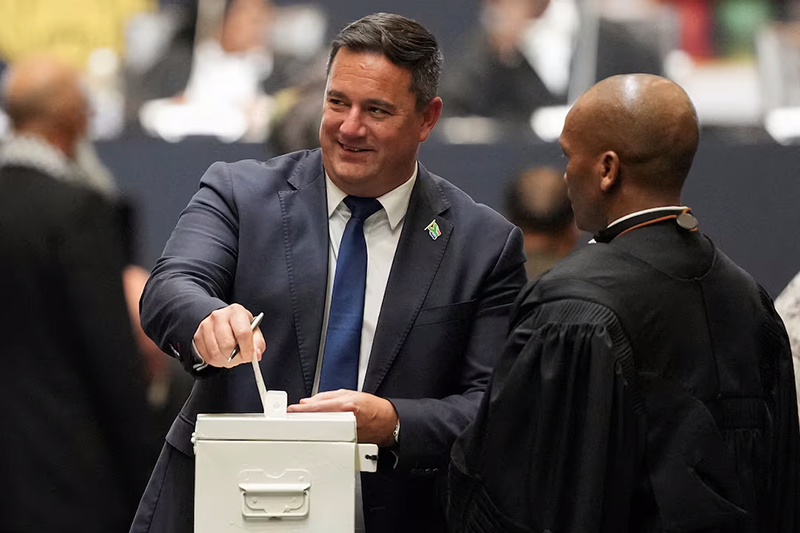- World & Africa
- No Comment
South Africa’s coalition government sees first real friction over education bill

By Reuters
JOHANNESBURG: South African President Cyril Ramaphosa’s office said he would sign into law a disputed education bill, prompting the first sign of real friction in his unity government when the second-biggest party said the move jeopardised the coalition deal.
Ramaphosa’s spokesperson called for restraint in response to the statement from the Democratic Alliance on Wednesday, saying there was no need to threaten the stability of government over a bill.
The DA entered into a coalition with Ramaphosa’s African National Congress and other smaller parties, despite strong ideological differences between them, after the ANC lost its parliamentary majority in a May election
The passing of the legislation would violate the agreements and understandings that formed the basis of the government of national unity, DA leader John Steenhuisen said in a statement.
“The DA regards this issue in the most serious light, and I will convey to the President the destructive implications it holds for the future of the GNU,” he said.
Steenhuisen did not spell out what the implications would be. He is due to address journalists in Cape Town on Thursday to outline what he sees as the DA’s role in the unity government.
Presidential spokesperson Vincent Magwenya said that disagreements over legislation were to be expected, and that the parties in government would be meeting on Wednesday evening to discuss a dispute resolution mechanism.
“There shouldn’t be any concern that each time there’s a dispute, the entire governance framework of this country will be under threat,” Magwenya told reporters in Cape Town.
“The president is not concerned about the GNU (government of national unity) collapsing,” he added.
The disputed bill makes several changes to basic education laws in South Africa. The clause that has caused the most controversy would strengthen government oversight over schools’ language and admission policies, touching on a sensitive debate about racial integration.
“There shouldn’t be any concern that each time there’s a dispute, the entire governance framework of this country will be under threat,” Magwenya told reporters in Cape Town.
“The president is not concerned about the GNU (government of national unity) collapsing,” he added.
The disputed bill makes several changes to basic education laws in South Africa. The clause that has caused the most controversy would strengthen government oversight over schools’ language and admission policies, touching on a sensitive debate about racial integration.
The ANC says some children are still excluded from schools based on language, which has been used as a proxy for race, and that the legislation will help prevent that.
The DA has defended the right of school governing bodies to determine their language policies, citing the importance of mother-tongue education.
Although the bill does not name any specific language or group, some of its strongest opposition has come from South Africa’s white Afrikaans-speaking community, with interest group AfriForum saying it threatens the survival of Afrikaans schools.
The DA’s statement followed a presidency statement saying that Ramaphosa would sign into law the Basic Education Laws Amendment (BELA) bill on Friday in a ceremony at the Union Buildings, the seat of government in the capital Pretoria.
